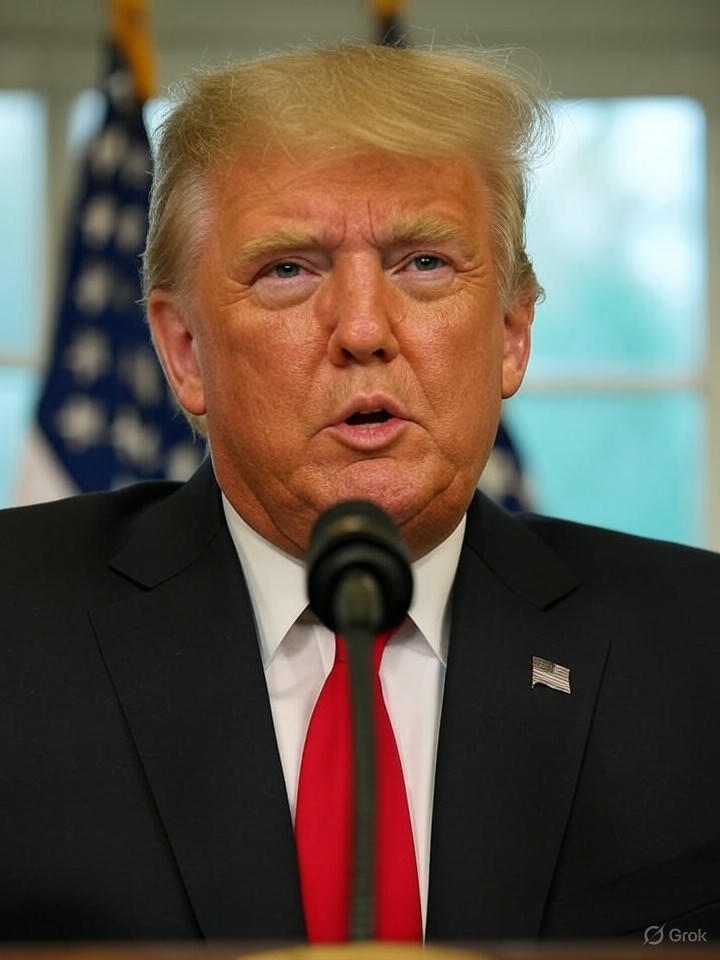In a significant move impacting U.S.-Mexico relations, President Donald Trump has announced a 90-day extension of tariffs on Mexican imports, a decision that intertwines crucial trade discussions with persistent border security efforts. This strategic pause, following a direct call with Mexican President Claudia Sheinbaum, aims to pave the way for a new, comprehensive trade deal, underscoring the administration’s consistent focus on leveraging economic policy for broader strategic goals.
The extended tariffs include a 25% levy on fentanyl and cars, alongside a 50% duty on steel, aluminum, and copper. In return, Mexico has committed to promptly dismantling existing non-tariff barriers, setting the stage for negotiations toward an updated trade framework. This bold step by the Trump administration signals a continued emphasis on protecting domestic industries and addressing the flow of illicit substances across the border, directly impacting sectors like automotive and manufacturing.
Economists and analysts are closely monitoring the potential ripple effects of these prolonged tariffs. Reports indicate that such measures could lead to an average tax increase for U.S. households, reflecting the broader economic consequences of ongoing trade disputes. This extension aligns with President Trump’s previously articulated threats, highlighting his administration’s willingness to use tariffs as a powerful tool to achieve trade and security objectives.
A critical aspect of these negotiations centers on enhanced border security cooperation and intensified efforts against fentanyl trafficking. Mexico’s agreement to address non-tariff barriers and its reported crackdown on cartels are direct responses to U.S. demands, emphasizing a shared imperative to combat the illicit drug trade. The White House has consistently framed these tariffs as a necessary response to the “extraordinary threat” posed by illegal drugs and migration, reinforcing a long-standing rhetoric on these vital issues.
The fentanyl tariff, in particular, addresses what President Trump has repeatedly declared a national emergency. This targeted approach underscores a commitment to curb the devastating impact of opioid addiction in the United States. The policy is firmly rooted in the administration’s broader agenda to enhance U.S. competitiveness and sovereignty, positioning trade policy as an integral component of national security strategy.
Industry experts view this 90-day extension as a tactical maneuver rather than a definitive resolution. While it offers a reprieve for immediate, more severe tariffs, concerns about potential supply chain disruptions persist, especially within the automotive and manufacturing sectors that rely heavily on cross-border trade with Mexico. The coming months will be crucial in determining whether this strategic pause leads to a stable, pragmatic agreement or escalates into a full-blown trade conflict, potentially impacting global markets.
Over the next quarter, discussions will focus on forging a new trade agreement designed to supersede the existing USMCA. Recent updates confirm Mexico’s temporary exemption from escalated 35% tariffs, providing a window for diplomatic progress. This period of negotiation is expected to define the future trajectory of U.S.-Mexico economic and security relations, with significant implications for both nations.
The approach reflects President Trump’s characteristic use of tariffs as a potent form of leverage, a strategy evident in his past public statements regarding border closures and trade penalties. While critics highlight the inflationary pressures and increased consumer costs associated with such tariffs, supporters argue they are vital for curbing the deadly flow of fentanyl that contributes to tragic loss of life in America. This ongoing debate underscores the multifaceted impact of these Trump trade policies.
As negotiations unfold, stakeholders across diverse sectors, including automotive, steel, and agriculture, are bracing for potential market volatility. Mexico’s agreement to remove non-tariff barriers could facilitate U.S. exports, yet a failure to reach a mutually beneficial deal might trigger more stringent measures, including border closures. Ultimately, this extension buys valuable time for diplomacy while maintaining strategic pressure on Mexico, blending economic strategy with critical security imperatives in this high-stakes bilateral relationship.





Leave a Reply